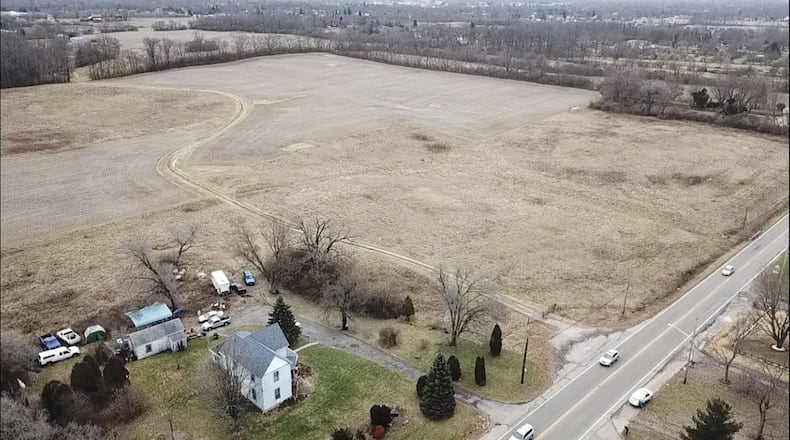The project still needs rezoning approval, and some neighbors have raised concerns about traffic safety and flooding from the site.
Dayton’s city commission this week gave preliminary approval and the project is expected to head to a vote by the commission for final approval later this summer.
Some commissioners said they want some assurances that the development will not harm neighboring properties.
"I think it would be a great investment for the city of Dayton, a great infusion into that community," said Dayton City Commissioner Jeffrey Mims Jr. "But it should not be at the expense of those who are living there and exacerbate problems they already may have."
On Wednesday night, the city of Dayton held a public hearing on a rezoning request from Oberer related to land along Old Troy Pike, south of Needmore Road.
Oberer has asked the city to repeal a planned development plan for the property that called for construction of 300 mobile homes on the site. That plan dates back to 1995.
The company wants a new development that allows for 256 single-family homes, which will offer between two to five bedrooms, ranging in size from 1,250-2,300 square feet.
The homes will have the option for either slabs or basements and will be one or two stories, with attached garages.
The property’s underlying zoning is suburban multi-family, but the proposed zoning map amendment would change that to suburban single-family residential, said Abigail Free, a city of Dayton planner.
The site currently is used for farmland and contains wetlands, she said, and the proposed development will preserve the wetlands and will add multiple detention ponds.
The development is expected to have about 32% open community space, and every lot will need at least one shade tree and 4-foot sidewalk, Free said.
The new development will have two roads into it from Old Troy Pike, city officials said, and Oberer also has agreed to construct new right-of-way improvements, like turn lanes, if engineering staff determine they are necessary for safety reasons.
Oberer has revised its original plans, which includes agreeing to construct a new sidewalk along Old Troy Pike. The original proposal called for a secondary access from an adjacent residential street, but that was scrapped after neighbors objected.
Greg Smith, developer with the Oberer Companies, said engineering staff with Dayton and Riverside are reviewing their plans and will provide recommendations on road improvements.
Smith said he expects new road improvements will be needed, especially when the first new entrance is created in the first phase of the project. The site sits on the border of Dayton and Riverside.
Some neighbors have voiced opposition to the proposal.
James Fetters, who lives on the 4300 block of Old Troy Pike across from the site, says he fears the project will compound unsafe traffic conditions and will contribute to flooding that could pollute his water source.
Fetters said this stretch of Old Troy Pike does not have turn lanes and auto crashes frequently occur, and the development’s new entry and exit points could add to the problem.
Fetters also said rain that falls on the planned development site floods his and his neighbors' properties, and water runoff gets into their wells.
He said he’s worried that chemicals like weed killers and motor oil could seep into the ground and “attack” their wells.
Bill Bullock, who lives on the 4300 block of Old Troy Pike, also said he is worried about contaminated water ending up on his property.
He too said he thinks adding new homes will increase traffic on the two-lane road, which will be unsafe.
Smith said the development’s detention ponds should actually result in less flooding on neighboring properties. Right now, he said, water runs off the property largely unrestricted.
In the future, water will run off the lots into the new streets, which will have curbs and gutters that capture the water in storm sewers that direct it to one of the six detention ponds, he said.
Water will be released from the ponds at a slower rate that it is today into the drainage areas, he said.
Smith also said chemicals from the new subdivision shouldn’t be worse than the herbicides and pesticide that are currently used on the farm land.
Water engineering will determine if other measures are needed above and beyond what is proposed to protect wells that provide safe drinking water, said Ann Schenking, chief planner and secretary to the Plan Board.
But overall, Schenking said, planning staff and the Dayton Plan Board support the proposed zoning changes,
"The Plan Board believes that the considerations necessary to approve a zoning map amendment can be made, and that the request is consistent with our comprehensive plan and the intent and purpose of our zoning code," she said.
City Commissioner Mims said he would feel more comfortable approving the project if the city can produce evidence that the neighbors' concerns are being addressed.
The city commission ultimately decided to let the case proceed and directed planning staff to add the zoning map amendment request to the commission calendar for consideration by Aug. 5.
About the Author


